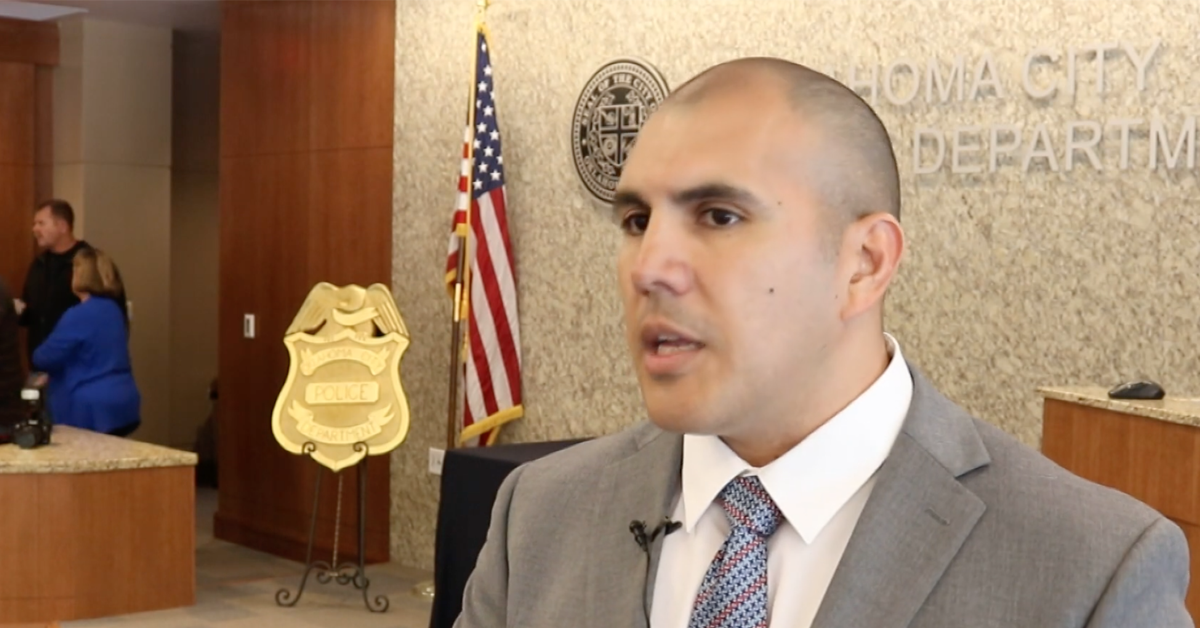Here’s my prediction for 2017: The big issue in the trial of Keith Foster will be the state of City Hall’s internal emergency alert system.
And that will test the political mettle of rookie Mayor Lee Brand.
The basic question in the Foster trial is obvious. The former Fresno deputy police chief is charged with being part of a conspiracy to distribute oxycodone, marijuana and heroin. Guilty or not guilty?
Foster says he’s not guilty.
The allegations and details of the Foster case are old news by now. Fresno’s No. 2 cop was arrested in March 2015 on federal drug charges. A handful of others were charged in the complaint. Foster resigned from the police force about a week after his arrest.
The case has been working its way through the legal system for almost two years. Foster’s trial – should there be one – most likely will happen in 2017.
Fresno’s courtrooms throughout Downtown get drug cases week in and week out. The fact that someone goes on trial for allegedly pushing (or intending to push) pain pills, weed and black tar heroin isn’t guaranteed to interest a veteran courthouse news reporter and his editors. Drug-running is routine stuff in a big, rough city like Fresno.
In that sense, the Foster trial figures to be full of sordid but all-too-common testimony involving our city’s underworld.
But Foster’s extensive network of contacts and responsibilities during his once-impressive professional career makes this alleged drug case one for the local history books. After all, Foster’s office in police headquarters on Mariposa Mall was about 10 feet from Chief Jerry Dyer’s office. Foster and Dyer lived, worked and talked side-by-side for years.
Two stories published in The Bee in the hectic days after Foster’s arrest are pertinent to this column.
I wrote the first one, published March 27, 2015. The hook was a City Hall news conference with Mayor Ashley Swearengin, City Manager Bruce Rudd and Dyer. The big question from reporters: How could City Hall be caught flat-footed by the Foster arrest? (City officials said they didn’t know anything until told by the feds after the deed.)
Swearengin at the 2015 news conference said FBI officials told her “the police department could not have known about these activities.” These “activities” apparently included Foster’s alleged crimes and the feds’ year-long investigation into them.
Dyer reports to Rudd. Rudd reports to Swearengin. By this logic, Swearengin, responsible for all that happens at City Hall on her watch, was blind as a bat while a deputy chief allegedly engaged in a second job as a drug-pusher.
Three days after my story, Pablo Lopez (one of the best courtroom journalists in America) wrote a story that made City Hall’s total ignorance of the Foster situation even more unfathomable.
“As a Fresno deputy chief of police, Keith Foster wore expensive suits purchased in Los Angeles,” Lopez wrote. “In his spare time, he would buy diamonds and furs and drive a Mercedes. His backup ride was a Corvette.
“But now, he has hit hard times. In addition to facing federal drug charges, Foster, 51, has a monthly payment of $5,100 in spousal and child support and owes about $38,000 in back taxes to the IRS and tens of thousands of dollars in credit-card and loan debt, even though he made nearly $14,995 per month in gross income from the Fresno Police Department, according to his divorce file in Fresno County Superior Court.”
Marshall Hodgkins, Foster’s lawyer, told Lopez: “He (Foster) literally can’t afford a place to live.”
Lopez dug into public documents and discovered something that completely escaped City Hall’s notice: Keith Foster’s financial life had collapsed, and the signs had been there for years.
Financial devastation by itself doesn’t mean a high-ranking cop would automatically go bad. But when you get into the adult world of immense public responsibilities, such a detail in a subordinate is certainly something anyone is a position of command would want to know. More to the point, a commander would know life is messy and would take pains to constantly monitor for signs of unexpected disaster.
All of us on occasion get blindsided by events.
We in America were blessed with or subjected to (depending on one’s politics) a “black swan” event on Nov. 8. It’s not a stretch to say almost all political pundits in the mainstream media predicted an easy victory for Hillary Clinton in the presidential election. Donald Trump would suffer a defeat worse than Barry Goldwater’s debacle at the hands of Lyndon Johnson in 1964 – the experts guaranteed it.
Here’s one example:
“In selecting Senator Tim Kaine of Virginia as her running mate, Hillary Clinton is sending the clearest signal yet that she is confident she will win the presidential election,” wrote Patrick Healy in The New York Times on July 22. “… Mrs. Clinton is showing her cards: In her view, she already has a straight flush heading into the fall with President Obama, former President Bill Clinton, Vice President Joseph R. Biden Jr., Mr. Sanders and Senator Elizabeth Warren of Massachusetts ready to campaign for her. She doesn’t think she needs an ace in the hole in November, according to Clinton advisers…. She is optimistic that because Mr. Trump is so divisive, she has no reason to fear him in traditionally Democratic states. She is investing far more money than the Trump campaign in voter turnout operations in battleground states, as well as spending far more on television commercials.”
The Fourth Estate, on which the fate of American democracy depends (just ask a print reporter if you don’t believe me), wrote stuff like that for months. The American reading public was betrayed by the deceptive or half-baked or inaccurate “intel” provided by legions of reporters who despise Trump and hold in contempt anyone who openly supports him.
The result: An intelligence failure of stunning proportions. How it happened remains a mystery. Since the mainstream media refuse to report on themselves, readers will forever remain in the dark.
One of the most dramatic intelligence failures in American history, of course, occurred on Dec. 7, 1941 with Japan’s surprise attack on American military assets at Pearl Harbor.
The definitive account of this failure is “Pearl Harbor: Warning and Decision” by Roberta Wohlstetter. Published in 1962, Wohlstetter’s exhaustive study digs into the nature of military intelligence operations, the decision-making structure on the civilian side, the strategic ambitions of Japan and the United States, and the abilities and limitations of human beings to process overwhelming amounts of data.
Signals, hints, suggestions, possibilities, information, noise about possible future dangers – they’re all out there in abundance, and they’re coming in 24/7. That was true in 1941. It’s true at the end of 2016.
“The fact of surprise at Pearl Harbor has never been persuasively explained by accusing the participants, individually or in groups, of conspiracy or negligence or stupidity,” Wohlstetter wrote in her conclusion. “What these examples illustrate is rather the very human tendency to pay attention to the signals that support current expectations about enemy behavior. If no one is listening for signals of an attack against a highly improbable target, then it gets very difficult for the signals to be heard.”
In the wake of the Foster arrest Swearengin and Rudd directed police auditor Rick Rasmussen to review police department policies regarding promotion at the highest levels. The goal was to make sure City Hall never again suffers such a surprise.
Rasmussen delivered a long report with a list of recommendations. Whether any were fully implemented probably will come out during a Foster trial. We may see Swearengin, Rudd and Dyer on the witness stand, answering tough questions under oath about what they knew and didn’t know about the fall of a deputy police chief.
For the most part a Foster trial would come and go with little substantive effect on the lives of most Fresnans. But there is one area of city government that could be dramatically changed by courtroom events.
A “citizens police advisory board” is coming to Fresno. Brand pushed hard for such a board during his tough mayoral campaign against Henry R. Perea. I’ve been told that the prospect of such a board was popular among many voters south of Shaw Avenue. If so, Brand’s support for the idea may have been the deciding factor in an election that could have gone the other way. Perea, who enjoyed the strong backing of the police union, had less flexibility on the issue.
The creation of the Office of Independent Review (police auditor) seven years ago was the culmination of a long and bitter political battle. Since then, the office has been anything but operationally stable. Rasmussen isn’t even based in Fresno; he lives in Salt Lake City. The OIR and the police auditor are still struggling to find their proper place within City Hall policy.
Just think of the potential operational and political headaches that could arise with something as new and influential as a citizens police advisory board. They could make the OIR debate look like a walk in the park. The crafting of the board’s enabling documents will be pivotal. Critics of the Fresno Police Department – and there are lots of them – will want a board to their liking. These critics most likely will want a progressive citizens police advisory board that can easily morph into a progressive citizens police review board.
If that comes to pass, the Fresno Police Department will change forever.
The critics will need political leverage to get their way. They will need proof of police department disarray to sway the public to their view, thereby giving council members the cover to revolutionize the way the department is controlled. Officer-involved shootings aren’t that proof. Incessant courtroom testimony about missed signals at City Hall pointing to the alleged Keith Foster disaster could be that proof.
Brand says he does not want his citizens police advisory board to evolve into anything resembling a review board. In that case, the new mayor would be wise to begin preparing his defense now.
I’m guessing police critics are preparing a surprise. Their delivery vehicle could be Keith Foster.
Photo: Fresno Bee File











Great in-depth assessment. Helpful and refreshing to have a writer capable of doing historical analysis. Always appreciate.
If he was doing it now he was doing it before regardless of how he tried to portray himself in court he does not really believe that his story would wash with his experience in the police force when you are caught flat-footed you crashed for straws which is what he did when he was arrested he broke the cardinal rule when you are arrested you do not speak until you speak with your lawyer four doesn’t he remember all the jokes after a drug arrest quote on quote the dummy just told on himself either way you should have took the four years you was offered I just finished my federal number so I won’t be there to get your care package ready haha have a nice dime for sure